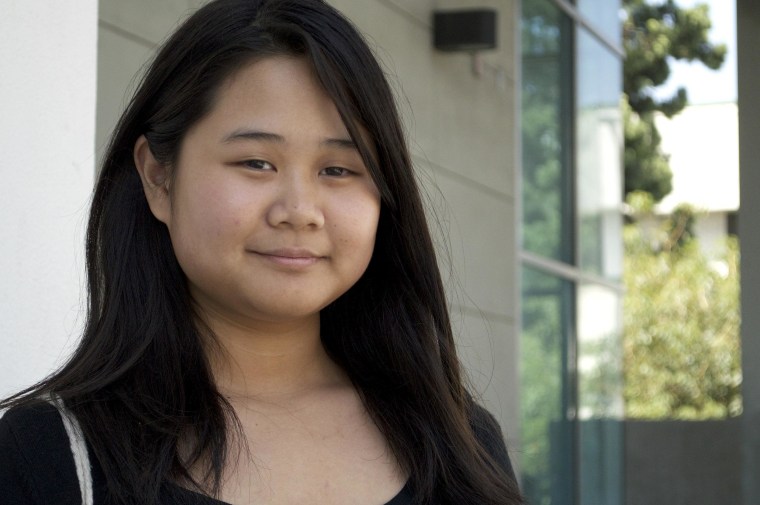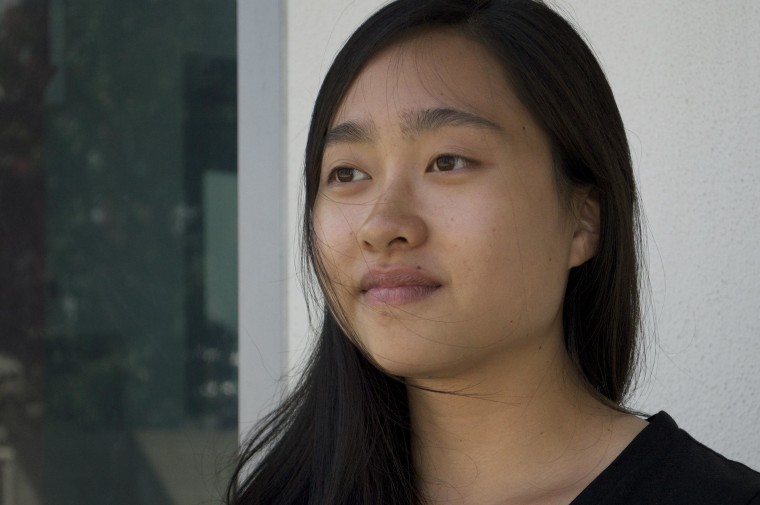For playwright Rachel Kauder Nalebuff, the mission was clear.
“I grew up speaking Chinese," said the New York Times bestselling author, "and so I wanted to create a program to help young Chinese-American teens and everyone in Chinatown learn how to write their own story in dramatic form because it’s so important to have a platform to express yourself."
Her workshop, the Chinatown Story Slam, invited teens from across Los Angeles' thriving Asian commercial hub to step on a stage and tell their own stories by answering the question, what does it mean to be Asian American?
“Programs like the Story Slam are important because they instill a sense in the workshoppers that they can actively shape our culture, " said Nalebuff.
Teens spent several weeks during the summer drafting a series of short plays and monologues, using their family and personal experiences to explore the frustrations and challenges of being an Asian-American teen today.
"One of the first activities we did was to look at all the movie posters of movies currently playing in L.A.," said Nalebuff, "and none of them featured Asian Americans and so once the kids realized that, I think it kind of clicked that what they’re doing is crucial because they are taking the first step in filling in the void of stories that aren’t being heard and that by sharing those stories, which is so brave, they are enriching everyone's culture."
The workshop was sponsored by the City of Los Angeles Department of Cultural Affairs.
Below, a look at some of the workshop participants and their stories from the final performance on August 9th.

Leeda Sea, on dealing with family expectations:
“Being an American Asian teen growing up in Los Angeles, your parents expect a lot of you to get Straight As from school, go to college and get a job and able to support yourself and support your family, too.”
Yu Lan Cai, on having the opportunity to speak her mind:
“I'm 17, I’m Chinese and I live in Chinatown. Being involved with this workshop was an accident. I came in one day at the library and I got involved. It was an interesting workshop because I get to write little plays about my own story to get my voice heard. It's important for us to be in this play because we normally don't get our voice be heard, or share our message, or our feelings or our cultures. So it's important for us to have this opportunity to express our feelings and our own heritage to everyone.”
Alan Aw, on dealing with stereotypes:
“I am 18 years old and I am Chinese Cambodian. Some stereotypes that I’ve dealt with during my teenage years was people during tutoring, asking me whether I was able to help them in math and I wasn't able to, and they were asking, ‘why aren't you good at math?’ Because they thought most Asians were good at math, but I was the only exception. It's just a misconception that most Asians are good at math.”

Lauren Lam, on what it means to be American:
"To my family, to be American means that you have an opportunity to live your dream. To my friends, it means wearing shirts, and pants with American flag patterns, hot dogs, hamburgers and watching Stephen Colbert. To me, it means people will always have clashing opinions."
Timothy Wong, on what it means to be a man in America:
“I’ve spent so much time asking myself what a man is. My dad tells me so much he wants to build me to his standard. But after a while I’ve given up on that. I don’t have enough time to please everyone. There’s fashion magazines with muscular tan white men. And then there’s me. And frankly, I’m ok with that.”